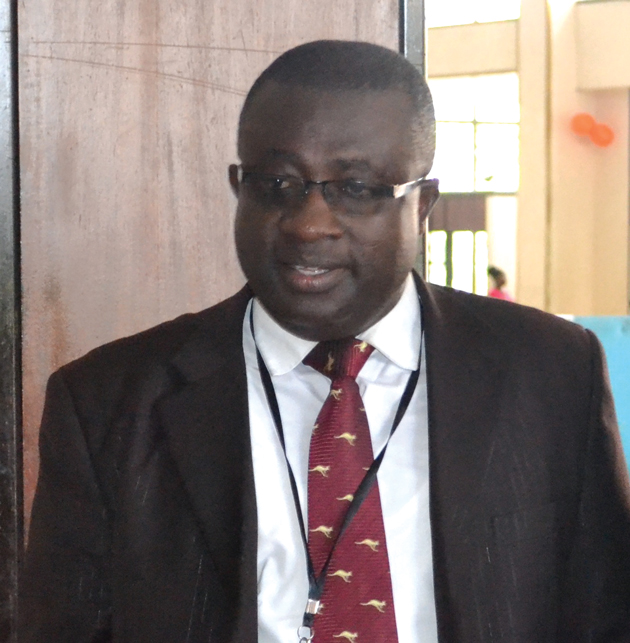Special topics
 Dr. Toni Aubynn, Chief Executive Officer of Ghana Chamber of Mines says the private sector operators need to rethink their business models to enhance transparency, as they continue to play an increasingly vital role in shaping the country’s social and economic development.
Dr. Toni Aubynn, Chief Executive Officer of Ghana Chamber of Mines says the private sector operators need to rethink their business models to enhance transparency, as they continue to play an increasingly vital role in shaping the country’s social and economic development.
“We need to rethink the way we conduct our businesses, we need to enhance transparency and accountability and put in place strategic interventions that will enable us to confront challenges that come with such development in the country.
“It is therefore necessary at every stage of the nation’s economic development process to support an inclusive and sustainable growth,” said Dr. Aubynn at the opening of a two-day United Nation’s global compact CEO roundtable, under the theme ‘Corporate Sustainability’.
The event, which was held in collaboration with the Ghana Chamber of Mines, brought together key business leaders in the country to discuss how the private sector can sustain the continent’s growth while creating jobs and ensuring prosperity and a better quality of life for all its citizens.
It provided a platform for the discussion of opportunities and challenges in embedding sustainability into corporate culture.
The programme was targetted at introducing the UN Global Compact broadly, its engagement in the country and across the African continent, as well as appeal to all corporate bodies to join the world’s largest voluntary corporate sustainability initiative.
Ms. Olajobi Makinwa, United Nations Global Compact’s Regional Representative-Africa, explained that the private sector still has a long way to go in terms of reporting and integrating a sustainability agenda into its standard operating procedures.
“While corporate sustainability may be yet to have a high-profile place among other discussions taking place on private sector development in Africa, the impact of sustainable businesses and the necessity for companies to adopt sustainable business practices is a fact that we in Africa can no longer ignore,” she said.
Governments must start to examine proposed investment deals in terms of environmental impact and long-term contribution to productive capacity.
“As we are all aware, economic growth is migrating to Africa; investing is less about extracting cheap inputs into the value chain.
“It is increasingly about being part of building future markets. This in turn implies a deep shift of corporate approaches to people, communities and the environment.”
She believes that the private sector, through working with various organisations and institutions, can realise Africa’s potential in an inclusive and sustainable manner.
Posted by essabra-mensah at 9:35 AM No comments:
Chamber of Commerce and Industry opens Wa office
The Ghana Chamber of Commerce and Industry (GCCI) has opened a branch at Wa in the Upper West Region in fulfillment of its strategic decision to have branches in all 10 regions of the country by 2015.
Abu Kasambata, Deputy Upper West Regional Minister speaking at the ceremony to officially open the branch, expressed appreciation to the Chamber for extending its operations to the business community in the region.
He indicated that measures are being put in place to open up the Wa Airstrip for commercial flights to facilitate and enhance the movement of people, goods and services to and from the region.
The initiative taken by GCCI to establish a branch in the Upper West Region is very laudable, he said: “In today’s business environment, success is not achieved by the amount of assets and financial resources an entity has, but rather the synergy that is built with other businesses”.
He indicated that there is no doubt about the Chamber’s ability to provide the necessary business support services to the small, medium and large companies in the region to succeed.
“Although the region faces myriad challenges, we have made positive strides and contributions in propelling the economy of the country,” he added.
Present at the ceremony was the Chief Director of the Ministry of Trade and Industry (MOTI) Mr. Dawunoba Baaka, delivering a speech on behalf of the Minister of Trade and Industry Haruna Iddrisu.
He noted that the region is endowed with natural resources such as cotton, groundnut, shea butter, and above all the availability of vast stretches of land which make it conducive to set up industries to add value to these raw materials.
Mr. Baaka indicated that government is ready to provide the necessary support to the business community in the region.
He outlined some of the supports available from the government as the Youth Entrepreneurship Support Fund and other stimulus packages that will be rolled out soon.
According to him, although the country benefits from Foreign Direct Investments (FDI), it is time for indigenes to also invest locally in the region as well. This, he said, with the help of the Chamber can be possible.
Mr. Baaka also took the opportunity to appeal to businesses in the region to advertise their products on the Web-Based Product Gallery. “The Web-based Gallery is an online platform to display made-in-Ghana products to interested buyers and investors,” he explained.
The President of GCCI, Dr. Seth AdjeiBaah, encouraged the business community, especially the young entrepreneurs, to apply discipline in managing their businesses as that is the key to growing a successful business.
Source: http://essabra-mensah.blogspot.com/
Get the latest news and updates on Ghana’s oil and gas value chain by following us Reporting Oil and Gas on twitter @oilgasghana and like our facebook page and get at us on Google+. Subscribe to our group to get update